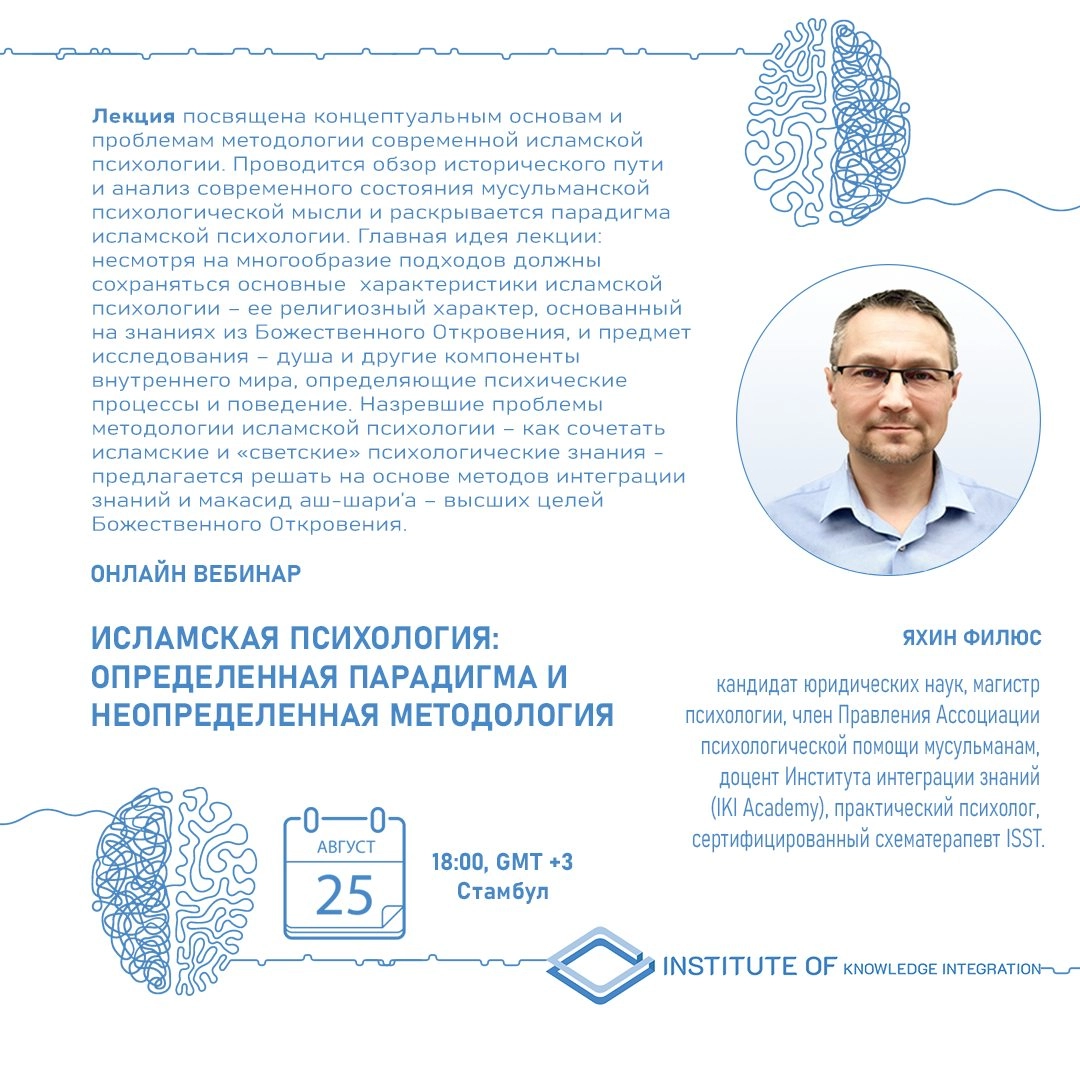On August 25, 2024, as part of the IIIT Lectures Series for CIS countries, a lecture titled “Islamic Psychology: A Defined Paradigm and an Undefined Methodology” was delivered by Dr. Filius Iakhin. Dr. Iakhin holds a Ph.D. in Law, a Master’s in Psychology, is a Board Member of the Association of Psychological Assistance to Muslims, an Instructor at the Institute of Knowledge Integration (IKl Academy), a practicing psychologist, and a certified schema therapist (ISST).
The lecture focused on the conceptual foundations and methodological issues of contemporary Islamic psychology. The topic of Islamic psychology is one of the most relevant areas in modern Islamic studies, as evidenced by a noticeable trend in the establishment of various professional associations and numerous publications in this field. Dr. Iakhin provided an overview of the historical development and analyzed the current state of Muslim psychological thought, introducing the audience to the main authors and approaches in this area. Despite the fact that Islamic psychology was not recognized as a distinct discipline in the past, Dr. Iakhin demonstrated how falsafa (including Aristotelians, Platonists, Neoplatonists, and Stoics), Sufism, traditional theology, and fiqh addressed this subject at different periods of Islamic civilization. Dr. Iakhin also touched upon the period of stagnation in Muslim intellectual thought, which was followed by a renewed interest in psychology, evident today through the emergence of new ideas and developments in the field. He mentioned the approaches of the Jadids, the Islamization of knowledge, and the works of Malik Badri, who laid the conceptual foundations of this discipline, which involves the conscious synthesis of knowledge, as well as Rasjid Skinner’s approach to alternative psychology based on Islamic sources.
Dr. Iakhin clarified important nuances related to the identity of a Muslim psychologist, the dangers of “blind” adherence to Western methodologies, and the importance of “filtering” approaches. For example, he mentioned critical remarks regarding Sigmund Freud’s theories, as well as the usefulness of certain developments in modern Western psychology.
Key Message of the Lecture: Despite the diversity of approaches, the fundamental characteristics of Islamic psychology must be preserved—its religious nature, based on knowledge from Divine Revelation, and its subject of study—the soul and other components of the inner world that determine mental processes and behaviour. The pressing issues of Islamic psychology’s methodology—how to combine Islamic and “secular” psychological knowledge—are proposed to be resolved based on methods of knowledge integration and the Maqasid al-Sharia (the higher objectives of Divine Revelation).
The recording of the lecture is published on the YouTube channel of the Institute of Knowledge Integration: https://www.youtube.com/watch?v=VaW9CR0pZHg







